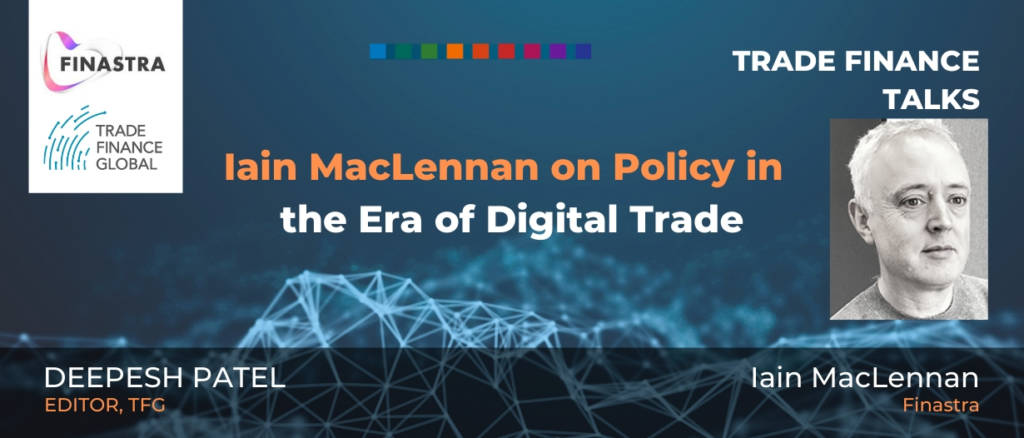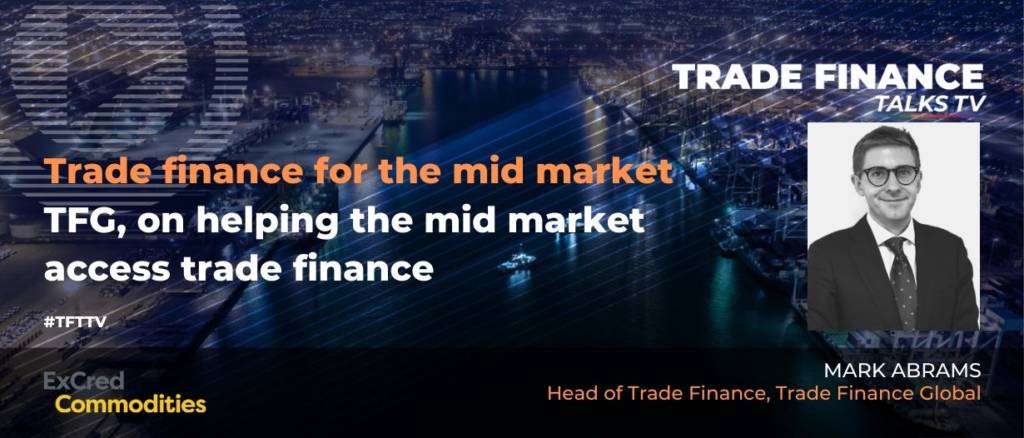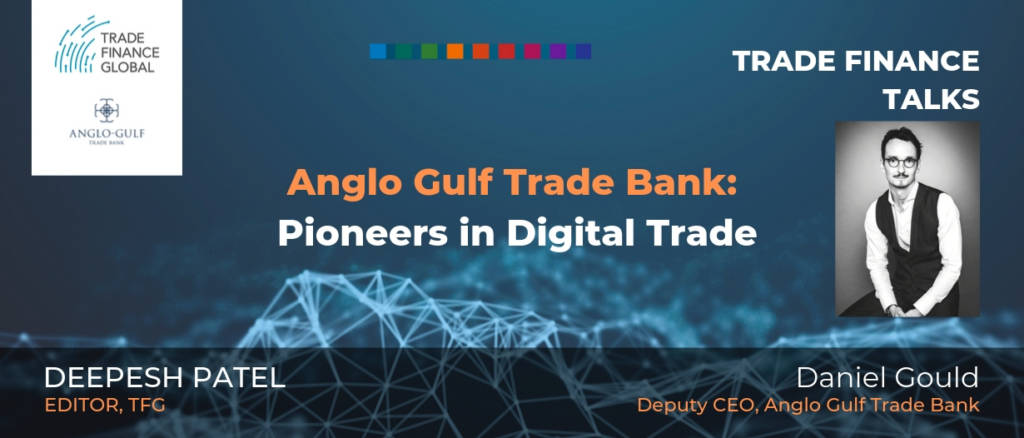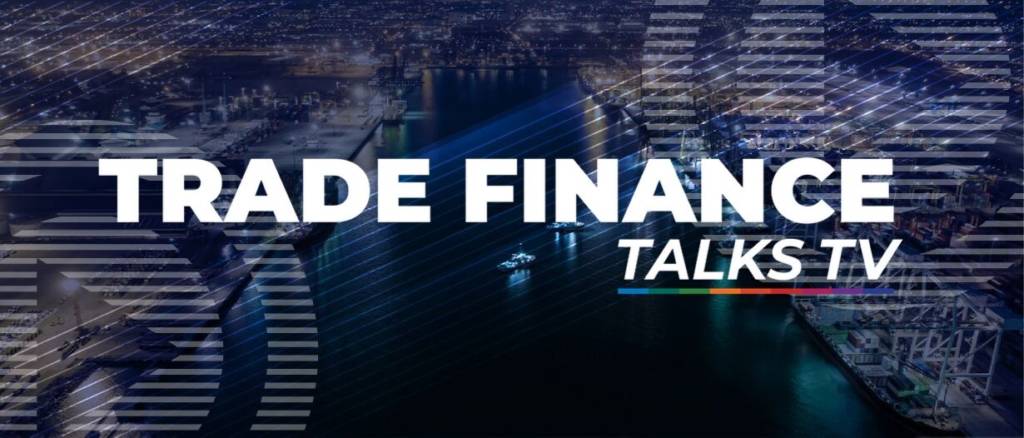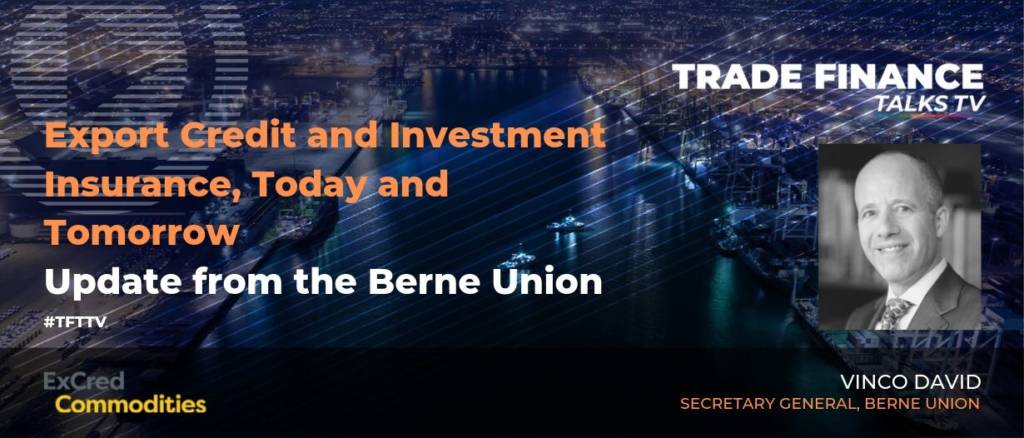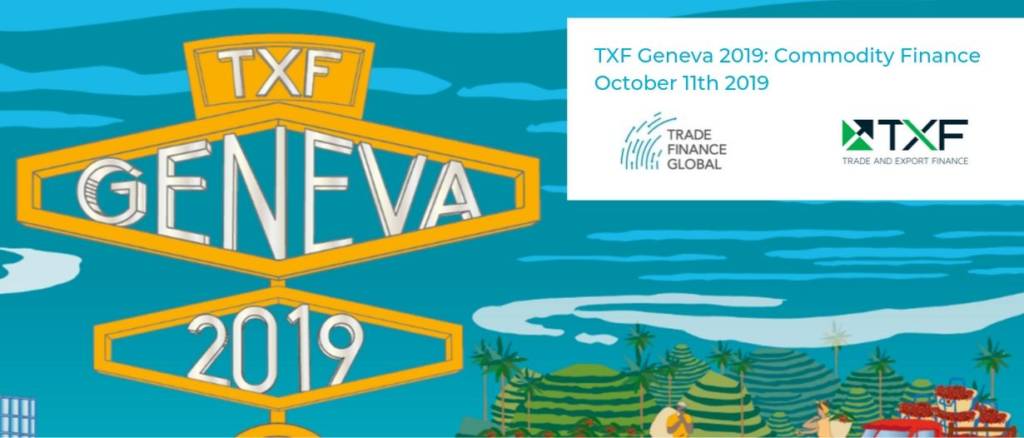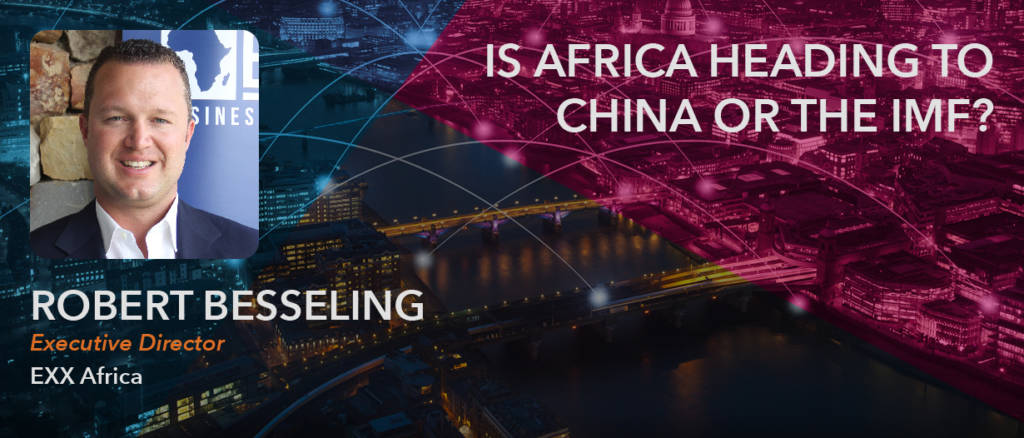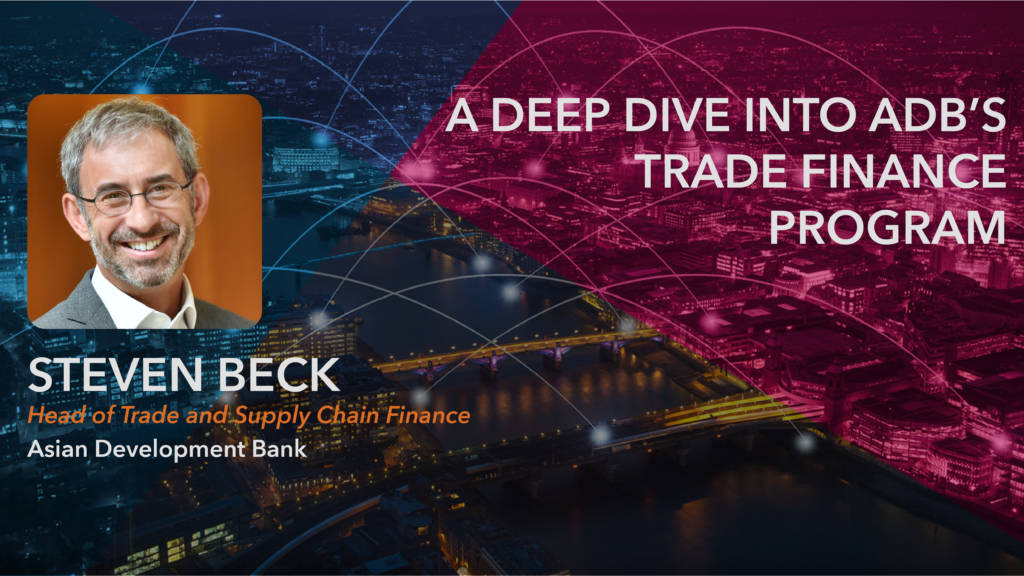TFG caught up with Iain MacLennan, Head of Trade & Supply Chain Finance at Finastra, on the key trends in trade and supply chain finance in an era of uncertainty and geopolitics, in preparation for the World Trade Symposium which will be held in New York on the 6th and 7th November.
We caught with Trade Finance Global’s Head of Trade Finance, Mark Abrams, discussing the latest on mid market access to trade and receivables finance, in light of trade wars and geopolitical uncertainty, particularly Brexit. The interview was held at ExCred Commodities in London.
AGTB: New kid on the block. TFG heard from Daniel Gould, Deputy CEO of Anglo Gulf Trade Bank, and its new digital offering for trade finance in the UAE and MENA region. Building a trade bank from scratch without relying on legacy technologies has enabled AGTB to reimagine trade finance, building a competitive product for the corporate banking space.
London, 1st October 2019. Trade Finance Global (TFG) are delighted to announce the launch of Trade Finance Talks TV.
TFG heard the latest updates in trade credit insurance and political risk appetite from the Berne Union. The Berne Union represents the export credit (ECA) and investment insurance industry. Vinco David, Secretary General spoke to TFG’s Deepesh Patel at ExCred Commodities London.
Michael Rolfe, Head of Commodity Finance at Bank Leumi spoke to TFG’s Deepesh Patel at ExCred Commodities London.
London, 20th September 2019. Trade Finance Global (TFG) are delighted to announce a media partnership with TXF at their 2019 Commodities Geneva and Political Risk & Insurance London Conferences.
Specialist intelligence company EXX Africa’s director Robert Besseling assesses that African governments are increasingly integrating infrastructure investment options into a more competitive landscape that seeks to bridge the massive annual financing gap. However, accomplishing sustained economic growth, meeting revenue collection targets, and achieving positive indicators will be required to balance growing debt levels and record fiscal expansionism.
Distributed Ledger Technology (DLT) has been around for several years and has its roots in the world of cryptocurrencies, often referred to as Blockchain. Having brought some very interesting opportunities to the Banking market, attention was sparked in other industries such as Insurance, Healthcare, Shipping, Supply Chains, Manufacturing and Trade Finance.
In 2012, Asian Development Bank’s Trade Finance Program (TFP) commissioned a unique study, the first of its kind, to understand and quantify the unmet demand for trade finance, known as the global trade finance gap. Over the years, TFP has updated this study to quantify and inform policymakers and market participants about the main drivers for this persistent trade finance gap.















